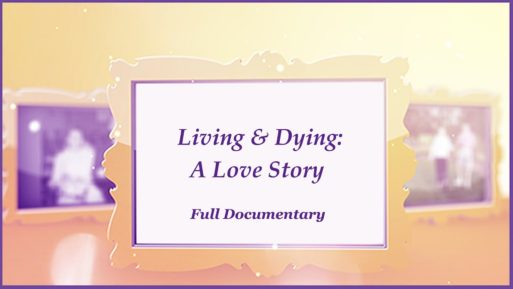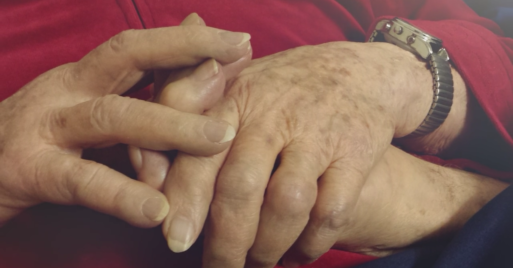 “Living and Dying: A Love Story” is a documentary that follows the end of life story of Charlie and Francie Emerick, a couple married for 66 years, both diagnosed with terminal illnesses and given six months to live. The film was shot by the couple’s daughter, Sher Safran and her husband, much of it on cell phones. The verite style gives a real immediacy to the footage and provides a home videoesque portal into the couples’ world as they make the boldest of decisions — the decision to end their lives by taking prescribed medications on April 20th, 2017.
“Living and Dying: A Love Story” is a documentary that follows the end of life story of Charlie and Francie Emerick, a couple married for 66 years, both diagnosed with terminal illnesses and given six months to live. The film was shot by the couple’s daughter, Sher Safran and her husband, much of it on cell phones. The verite style gives a real immediacy to the footage and provides a home videoesque portal into the couples’ world as they make the boldest of decisions — the decision to end their lives by taking prescribed medications on April 20th, 2017.

Credit: sharewisdom.com
“Living and Dying: A Love Story” is both a beautiful record of the love and 66-year marriage between Charlie and Francis and an exploration of the process of medical aid in dying using Oregon’s Death with Dignity Law. Passed on October 27th, 1997, the Death With Dignity Act allows terminally ill Oregonians to end their lives through the voluntary self-administration of lethal medications, expressly prescribed by a physician for that purpose. Since the passage of the law, more that 1,300 people have ended their lives using prescribed medication. In 2017, when the Emericks ended their lives, they were two of 143 people to choose medical aid in dying in Oregon that year.
There are parts of the film that are so heavy and sad that they are hard to watch. But by the time the couple’s predetermined day arrives, you’re convinced that they are making the right decisions for themselves. “This had always been their intention,” said their daughter Jerilyn Marler, 66, who also served as the couples’ primary caregiver in their final years. “If the there was a way they could manage their own deaths, they would.”

Credit: mirror.co.uk
On the day of their deaths, Francie, 88, went first. She was gone within 15 minutes of taking the medication, due to the state of her weakened heart. Charlie, 87, a respected ear, nose, and throat physician afflicted with Parkinson’s disease, prostate cancer, and heart problems, died an hour later.
The film contains deeply moving, intimate footage of the couples’ final morning. Loved ones are gathered, and Francie and Charlie have individual moments with friends and family, hugging people goodbye and exchanging words of gratitude for the ways they’ve shaped each others lives. The last scene of the film, before an “in memoriam” montage of photos, shows Francie, when asked in an interview about her decision, whether she has any last thoughts she’d like to share. She answers, “Well, I do hope it’s a glorious adventure, and that we just get to keep learning.”
I was really touched by this film, and touched by the strength, bravery, and conscientiousness with which the Emerick’s made their decision and carried it out with such care.

 “Living and Dying: A Love Story” by Sher and Rob Safran
“Living and Dying: A Love Story” by Sher and Rob Safran


 “As Tears Go By” by Marianne Faithfull
“As Tears Go By” by Marianne Faithfull

 Funeral Favors Offer Visitors a Tangible Memento
Funeral Favors Offer Visitors a Tangible Memento















